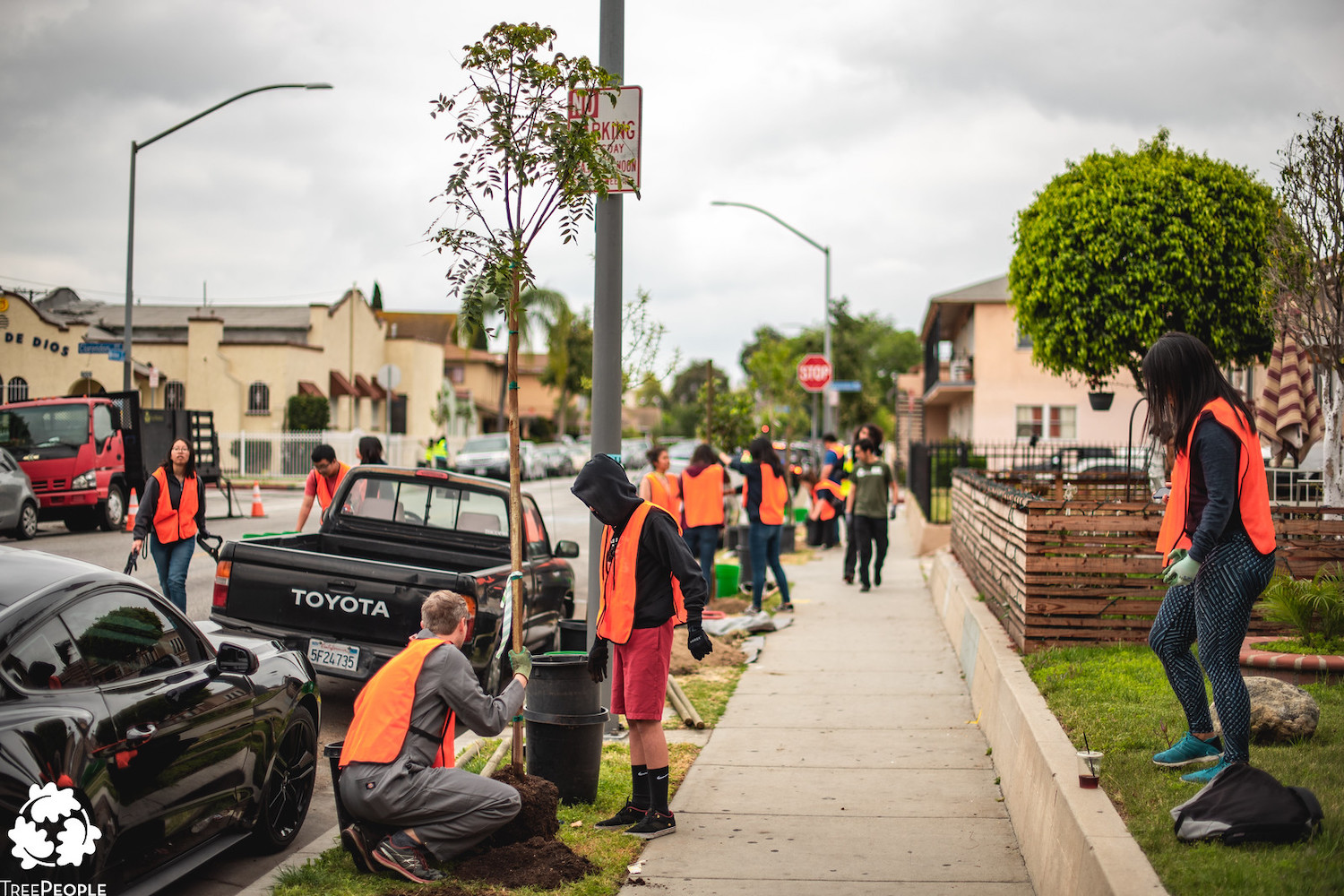By Carissa Donahoo, Public/Mental Health Organizer
It was sad, but altogether necessary, that we shut down our home at Coldwater Canyon Park to the public last month.
At TreePeople, we take great pride in providing a safe, beautiful respite to all Angelenos because we understand how critical green spaces are to our health, our connectivity with others and our way of life.
Under the Safer at Home order, many of us now find ourselves isolated and stuck indoors, but still afforded the relative luxury of stepping outside, taking a walk and getting some fresh air. For many, this has spurred a reconnection with nature and a renewed focus on the importance of these spaces.
But this should also serve as a stark reminder that so many Angelenos — in fact, most — do not enjoy such a luxury.
And it is why TreePeople does its work.
There are low-income and underserved communities across the county — from Pacoima to Watts, from Pomona to Inglewood — that suffer daily from negative health effects caused by our urban environment. Access to green spaces in these communities are far and few between. Today, those rare public park spaces are closed, meaning even less access to a bit of relief.
These neighborhoods are covered in concrete and pavement, with few parks, shading trees and natural areas. This makes people, from children to elderly folks, much more vulnerable to extreme heat and poor air quality. Extreme heat causes more reported deaths in the United States each year than any other weather-related hazard.
We also know this exposure to poor air quality and extreme heat does more than just pollute the environment and choke our natural lands — it is breathed into the lungs of the people that live there, making them much more susceptible to asthma, cardiovascular disease, and other life-threatening illnesses.
And now, research has found that people with long-term exposure to pollution are more likely to die from COVID-19 than patients from areas with less pollution, according to The New York Times.
What’s more, it goes beyond the physical health into the mental and social health of each community member.
We know lack of parks, greenery, and open space can lead to higher levels of anxiety and depression. Even in normal times, a lack of green spaces — places designed for us to socialize, connect and reflect — cause people to become lonelier and less connected.
And during social isolation, the need is even greater.
So while in isolation, be sure to take advantage of whatever green areas you have access to. If this crisis has brought you closer to nature, let’s maintain that connection and pay it forward by investing time and effort in areas that have limited access to nature.
Join us in our work. Our efforts are aimed directly at addressing these inequities by inspiring, engaging and supporting people to take action.
And each tree that is planted will provide shade for someone else to rest under. It will clean the air for someone else to breathe into their lungs.
And once we’re able to, those trees will be a place for us all to connect — together.

